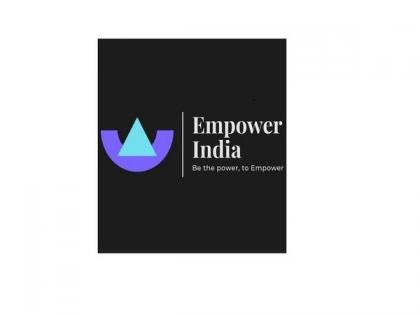An Inclusive E-Commerce Framework in the FTP will propel India towards an export led economy
By ANI | Updated: February 17, 2022 14:40 IST2022-02-17T14:28:36+5:302022-02-17T14:40:08+5:30
The revised Foreign Trade Policy (FTP) is expected to come into effect from April 1st, 2022. As a policy that continues to remain effective for a period of 5 years, the FTP provides a basic policy framework and strategy for promoting exports and trade.

An Inclusive E-Commerce Framework in the FTP will propel India towards an export led economy
The revised Foreign Trade Policy (FTP) is expected to come into effect from April 1st, 2022. As a policy that continues to remain effective for a period of 5 years, the FTP provides a basic policy framework and strategy for promoting exports and trade.
With India being home to over 6.3 crore MSMEs that contribute to nearly 40 per cent of India's overall exports and about 29 per cent towards the country's GDP through national and international trade, the FTP becomes an important policy instrument. The existing policies on exports have catered largely to traditional, offline B2B exports. Given the unique challenges of e-commerce exports, such as cross border transactions, international deliveries and returns, and the critical role it plays in helping local products go global, it is important to create a conducive policy framework for e-commerce exports through FTP that will help lower the entry barrier for MSMEs to start exporting and helping promote e-commerce as a channel of export. To drive further discussion around this, Empower India organised a virtual session to deliberate on the upcoming Foreign Trade Policy where Dr. Aruna Sharma, IAS, Former Secretary to the Govt. of India, highlighted, "It is important to have provisions in the FTP 2022 that reduce compliance burdens on small businesses in the country. The new chapter on e-commerce exports should provide working capital and support mechanisms that fund MSMEs in order to increase exports." Lloyd Mathias, Business Strategist, and an Angel Investor, said, "E-commerce gives access to the global marketplace, providing MSMEs with a new consumer-set and enabling them to compete with the best in the world. It also enables a self-correcting cycle by providing real-time feedback to help ensure paramount quality and standardisation of products." Dr Avik Sarkar, Professor, Indian School of Business (ISB), stated, "Global e-commerce platforms can play an important role in helping India become a key player in global trade. The government should execute elaborate programs for quality control and certification of products so that MSMEs can be smoothly on-boarded on these platforms." Dr Arpita Mukherjee, Professor, ICRIER, stated that "The FTP should recognize the potential of e-commerce exports and have a separate chapter for e-commerce wherein MSMEs can piggyback on the pre-existing infrastructure that big marketplaces provide for selling internationally to new customer base with minimum investment. This can help domestic MSMEs to go global, and integrate them deeply into global supply chains." Some recommendations for the specific chapter on e-commerce exports in the Foreign Trade Policy 2022 include:
* Increase e-commerce exports awareness* Implement end-to-end digitization for exports related processes* Develop specialised logistics capabilities for e-commerce exports* Simplify compliances and regulatory requirements for e-commerce export* Create long term capabilities and schemes to support the growth of e-commerce exports The FTP could focus on several short to mid-term measures, which would help iron out the operational inefficiencies that MSMEs face as they export through the e-commerce channel. At the same time, it should also focus on creating longer term capabilities for e-commerce exports by creating dedicated e-commerce export zones (by leveraging existing SEZs), developing specialised low cost, trackable logistics solutions for e-commerce exports, and extending benefits of schemes like Market Access Initiative (MAI) to e-commerce exporters. Such exports will lead the potential pathway to a USD 400 billion market, taking India a step closer towards the Prime Minister's vision of becoming 'Aatmanirbhar'.
This story is provided by BusinessWire India.will not be responsible in any way for the content of this article. (ANI/BusinessWire India)
( With inputs from ANI )
Disclaimer: This post has been auto-published from an agency feed without any modifications to the text and has not been reviewed by an editor
Open in app